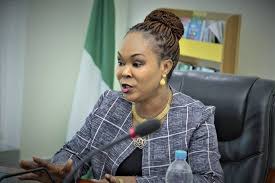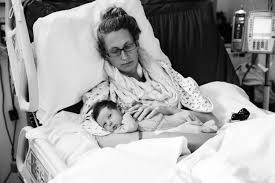
Minister urges bold action for women empowerment, gender inclusion
Actions for women's empowerment and gender inclusion have been promoted by Mrs. Uju Kennedy-Ohanenye, Minister of Women and Social Development.
She made the announcement on Tuesday in Abuja during a workshop on the application of the National Women's Economic Empowerment policy, which was attended by eight commissioners for women's affairs.
The National Institute for Policy and Strategic Studies and the Development Research and Projects Centre collaborated to organise the workshop, according to the News Agency of Nigeria.
With the goal of offering guidelines for the domestication of the WEE policy in states, Plateau, Akwa Ibom, Kano, Borno, Kwara, Kaduna, and Enugu are among the states represented at the workshop.
WEE was established in 2023 to address the gaps that women have in obtaining chances and financial rewards across a range of industries, as well as to streamline gender policies.
The programme aims to coordinate efforts among development partners to promote women's rights and empowerment in Nigeria, as well as to improve gender equality and reduce poverty.
The strategy also aims to address women's empowerment and the gender pay gap.
For the policy to go into effect nationally, the majority of states needed to domesticate it after a year of its introduction.
Nonetheless, the minister highlighted how critical it is to alter cultural narratives and preconceptions that negatively impact women.
She emphasised the proactive steps the government was doing to change the narratives and empower women.
She argues that women's empowerment is necessary for achieving true gender inclusion and emphasises the importance of "tangible actions rather than endless meetings."
She declared that the government would begin sending empowerment packages to fifteen states, demonstrating its support for women.
Kennedy-Ohanenye disclosed that the ministry had opened a portal for women to register, and that more than 283,000 members had already been registered.
She did, however, voice concern about the fact that certain nations were still not actively taking part in the registration procedure.
The minister called on subnational organisations and agencies that support women to work with the Federal Ministry of Women Affairs to register local women's groups.
"Our partnership seeks to guarantee that all women, particularly those residing in remote regions, have access to opportunities for empowerment," she continued.
Kennedy-Ohanenye bemoaned the misappropriation of money intended for women's empowerment and emphasised the pressing need to resolve the problem in order to stop more pain and deprivation for women.
Speaking as well, Mrs Grace Obi-Okpabi, Deputy Director of Economic Growth at the Federal Ministry of Budget and Economic Planning, criticised the exclusion of women's contributions from economic planning.
According to her, women's difficulties are frequently viewed through the lens of "hand-outs" rather than their economic contributions.
The deputy director pointed out that women should be sufficiently represented in national planning, as they made up 49% of the population.
Dr. Judith-Ann Walker, the DRPC's executive director, praised the research centre for its more than 20 years of partnership with NIPSS.
In order to overcome societal concerns, she noted, such partnership between civil society organisations and government entities is vital.
Walker continued, "The emphasis on the significance of policy implementation and the commitment to support domestication of the WEE policy at the subnational level underscore the practical steps being taken to effect positive change for women and girls in Nigeria."
The necessity for women to have access to affordable loans was highlighted by Mrs. Asabe Bashir, Director-General of the Maryam Babangida National Centre for Women Development.
Speaking through Mrs. Jumai Idonije, Bashir stated that empowering women is not only morally required, but also economically feasible.
She claims that Nigeria is the first nation in Africa to introduce the WEE project, and she goes on to say that the project's execution is crucial for the advancement of society and an important step towards the empowerment of women.
Prof. Ayo Omotayo, the Director-General of NIPSS, promised the institute's support for the policy's implementation at the federal and state levels while urging meaningful debates on women's inclusion.
The statement "Women have 18 slots for the 2024 course, but currently there are only nine women" was said in addition to bemoaning the low enrollment of women in the NIPSS course. Any country that places a high priority on women's empowerment is headed towards growth.





